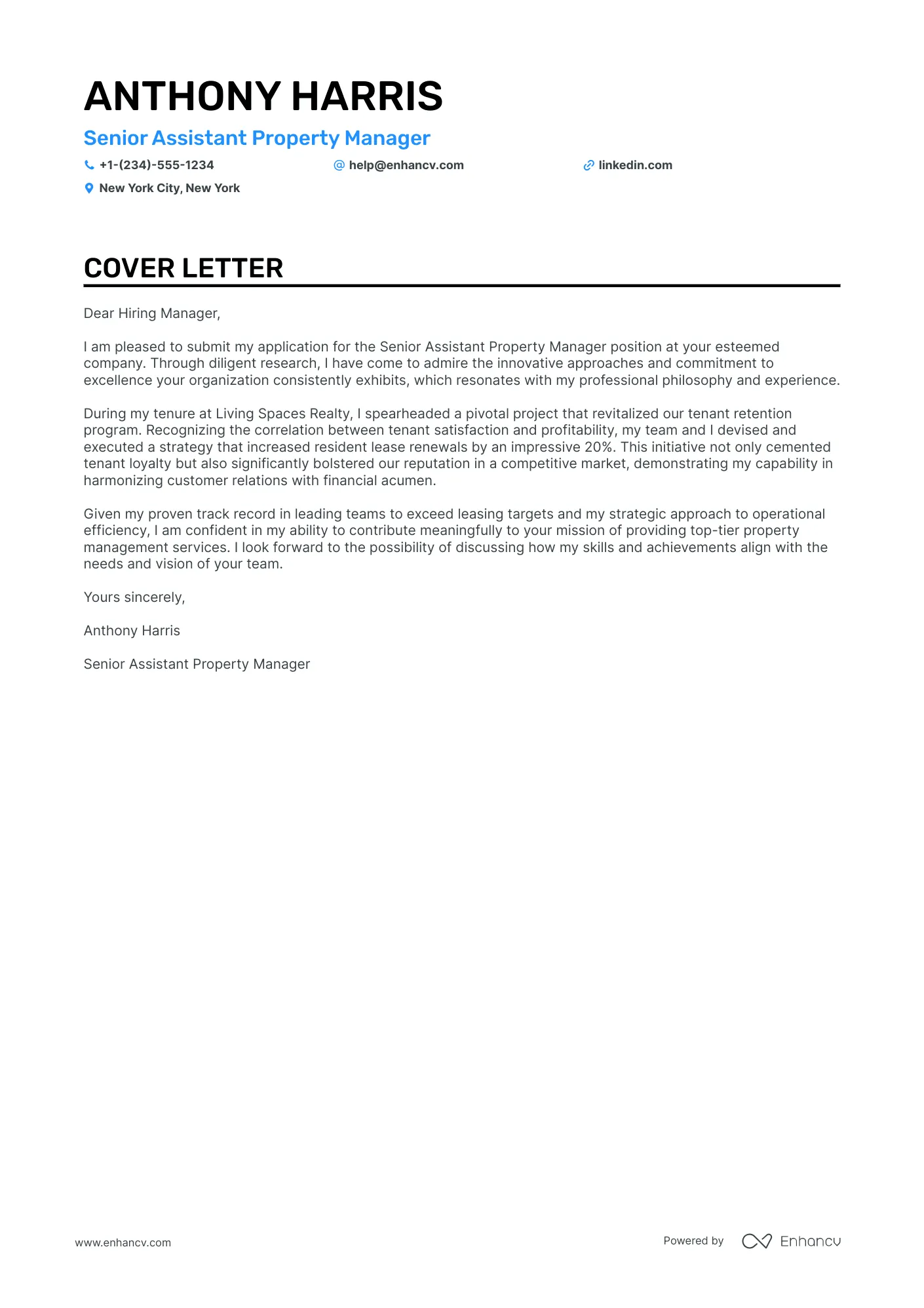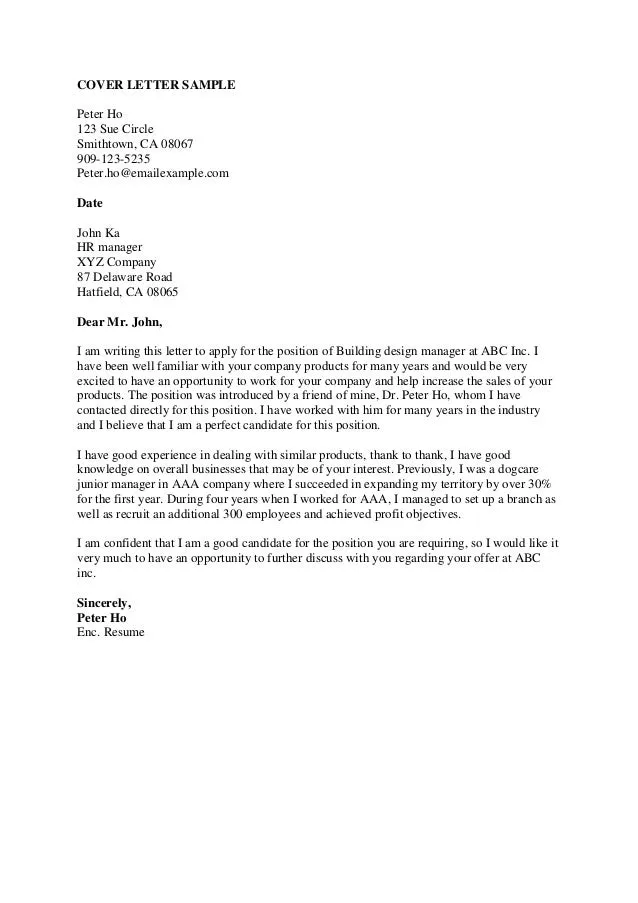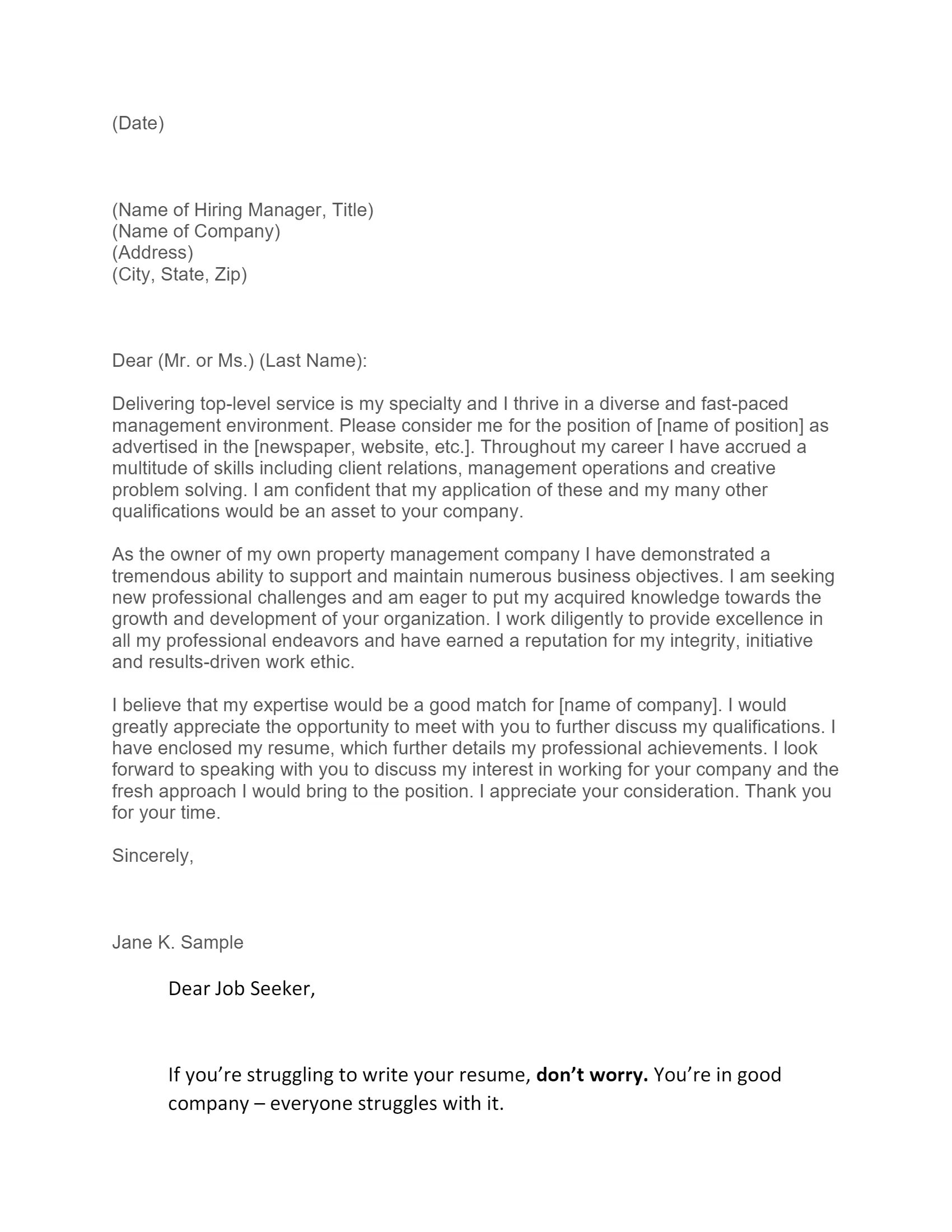Crafting Your Cover Letter
A well-crafted cover letter is your first opportunity to make a strong impression on a potential employer. It’s a crucial component of your job application, serving as a personal introduction and a showcase of your qualifications. Unlike a resume, which provides a factual overview of your experience, a cover letter allows you to express your personality, enthusiasm, and understanding of the role. For a property manager, this is especially important, as the role demands strong communication, organizational skills, and a proactive approach. This guide will equip you with the knowledge and tools to write a cover letter that captivates hiring managers and sets you apart from the competition. Start by viewing the job requirements and highlighting your skill, and the main task of a property manager
Understanding the Property Manager Role
Before you begin writing, it’s essential to understand the responsibilities and expectations associated with a property manager position. Property managers oversee the day-to-day operations of residential, commercial, or industrial properties. Their duties encompass a wide range of tasks, including tenant relations, property maintenance, financial management, and legal compliance. A successful property manager is organized, detail-oriented, and possesses excellent communication skills to interact with tenants, vendors, and owners. They should also be knowledgeable about local and federal housing laws. This understanding will enable you to tailor your cover letter to highlight the specific skills and experiences most relevant to the role you’re applying for.
Highlighting Your Property Management Skills

Your cover letter should effectively showcase your key skills that align with the requirements of a property manager. Focus on the skills most critical to the role. These might include expertise in areas such as lease administration, rent collection, maintenance coordination, and tenant screening. Make sure you demonstrate your experience with property management software or any other tools. Providing examples that showcase your skills is crucial. If you have a proven track record of maintaining high occupancy rates, reducing maintenance costs, or resolving tenant disputes effectively, include specific details and quantifiable results to support your claims. Property management is a highly skilled job, so make sure the skills are well defined to match with the job requirements.
Demonstrating Your Relevant Experience
In this section, provide information about your past work experience. While a resume provides a summary, your cover letter lets you elaborate on the most relevant aspects of your work history. Start by identifying positions where you have served in a property management role. Describe your responsibilities, the size and type of properties you managed (e.g., apartments, commercial buildings), and any achievements. Use the STAR method (Situation, Task, Action, Result) to structure your examples. For instance, if you successfully improved tenant satisfaction, explain the situation, your specific task, the actions you took, and the positive results you achieved. Focus on the experience that best aligns with the job description, and show the hiring manager that your qualifications make you a strong candidate for the position.
Tailoring Your Cover Letter
Avoid the mistake of sending a generic cover letter to every job. Customizing your cover letter for each application is critical to demonstrate your interest and understanding of the specific property management opportunity. Read the job description carefully and identify the key requirements. Highlight the skills and experiences that align with the needs of the hiring company. Research the property management company and the properties they manage. If possible, tailor your cover letter to address specific issues or challenges facing the company. This level of detail shows that you are genuinely interested in the role and have taken the time to learn about the organization. A well-tailored cover letter is more likely to capture the attention of the hiring manager and move your application forward.
Essential Cover Letter Components

To ensure your cover letter is professional and impactful, make sure you include all the essential components. Start with a clear heading that includes your contact information and the date. Address the hiring manager by name if possible; this shows you have taken the time to do your research. In the body of your letter, state the position you’re applying for, how you learned about the opportunity, and why you’re interested. Highlight your relevant skills and experiences, and provide specific examples that demonstrate your achievements. Clearly state your goals in the letter. End with a call to action, such as expressing your interest in an interview and thanking the reader for their time and consideration. Proofread your letter and keep the language professional. Following this format helps you make a strong impression on the hiring manager.
Format and Structure
The format and structure of your cover letter is crucial for making a positive impression. Maintain a professional and easy-to-read format. Use a standard business letter format with clear paragraphs and concise sentences. Use a professional font, such as Arial or Times New Roman, with a font size between 11 and 12 points. Your cover letter should be no more than one page long. Begin with a strong opening paragraph that states the purpose of your letter and grabs the reader’s attention. In the body paragraphs, elaborate on your key qualifications and provide examples. Use bullet points to emphasize key skills or achievements. Maintain a consistent style throughout the letter, and end with a compelling conclusion that reiterates your interest in the position and your call to action.
Proofreading and Polishing
Before submitting your cover letter, it is essential to proofread and polish your work. Even minor errors can make you seem careless or unprofessional. Carefully check for any grammatical errors, spelling mistakes, and punctuation issues. Read your cover letter aloud to catch awkward phrasing or sentences that don’t flow well. Ask a friend or colleague to review your letter for any errors and to provide feedback on the overall clarity and impact. A polished cover letter is a reflection of your attention to detail and professionalism. Make sure every aspect of your application is impeccable. By taking the time to proofread and polish your cover letter, you increase your chances of making a positive impression and securing an interview. It can often mean the difference between landing an interview and getting your application tossed in the reject pile.
